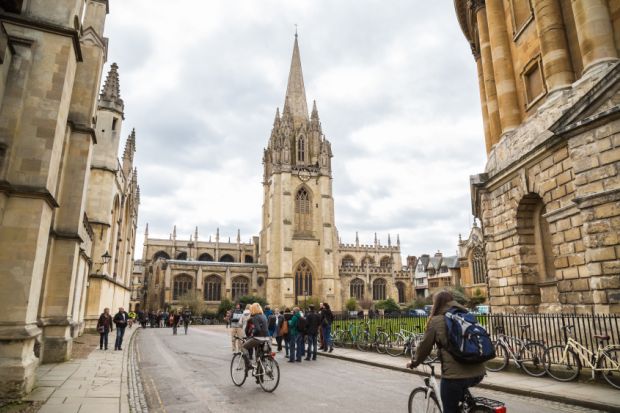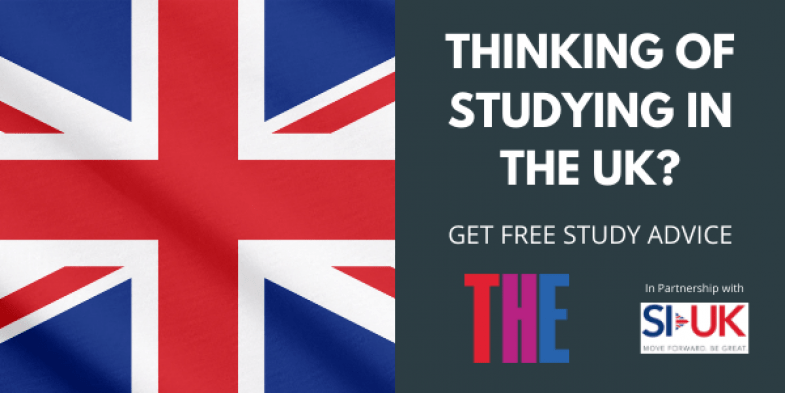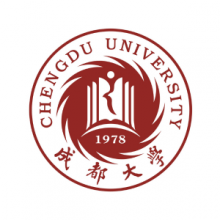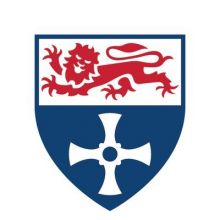
What are the top universities in the UK? If you want to study in England, Scotland, Wales or Northern Ireland, which universities should you consider?
This UK university league table reveals the best UK universities and colleges, according to the trusted Times Higher Education World University Rankings 2021.
The University of Oxford and the University of Cambridge take the top two spots, while three of the best universities in London complete the top five.
Choosing a UK university
How to choose a UK university
Best universities in Scotland
Graduate employability: top universities in the UK ranked by employers
A guide to UK tuition fees and student visas: Preparing for university as an international student
Apply to UK universities through Ucas as an international student
Choosing your university: 5 things to do before submitting your Ucas application
7 tips for applying to top universities in England and the United States
The 10 most beautiful universities in the UK
The cost of studying at a university in the UK
Best universities in England
Scholarships available in the UK for international students
What does the new post-study work visa mean for international students in the UK?
Three universities in Scotland appear in the top 25: the University of Edinburgh, the University of Glasgow and the University of Aberdeen, while the best institution in Wales is Cardiff University, ranked 27th.
For students looking to study in Northern Ireland, the best university in the ranking is Queen’s University Belfast.
Of the top universities in the UK, about 20 are in London, including well-known institutions such as Imperial College London and UCL, and more recently established universities such as the University of Westminster and the University of Greenwich.
Student experience in the UK
What I learnt from applying to Oxbridge
'Studying in the UK has always been my dream'
A year in London: final reflections on my year studying abroad
International perspective: an Indian student in the UK
#UniAdviceWeek: a first year student from University of Oxford takes over our Twitter account
Where did UK royals go to university?
A day in the life of a university student in the UK
International perspective: a Polish student in the UK
International perspective: students from Hong Kong in the UK
International perspective: a Malaysian student in the UK
Top 5 universities in the UK
1. University of Oxford
One of the oldest and most prestigious universities in the world, the University of Oxford attracts top scholars and students to its 44 colleges and halls. Entry standards are high and admission is competitive; on average, it receives five applications for each available place.
As is common in the UK, the university offers a number of joint honours programmes that combine two subjects at undergraduate level. In total, there are 250 undergraduate degree combinations. The combination of philosophy, politics and economics is a particularly prestigious degree course on offer, although it is no longer unique to Oxford.
Undergraduates and postgraduates belong to a college and often live in the college building or college-owned accommodation. Social life and recreational activities – such as rowing, cultural events and societies – also revolve around the college. Undergraduates are taught almost exclusively by tutors in their college, while postgraduate students are primarily served academically by a centralised faculty.
There are more than 100 libraries at Oxford, the most famous of which is the Bodleian, built in 1602. The city also boasts a number of museums, including the Oxford University Museum of Natural History, which houses the remains of a dodo, and the Museum of the History of Science, which displays a blackboard used by Albert Einstein.
More than 30 world leaders, 27 British prime ministers, 50 Nobel prizewinners and 120 Olympic medallists were educated at Oxford. Stephen Hawking, Hugh Grant and Indira Gandhi are some of its famous graduates.
Tips for acing your University of Oxford interview
2. University of Cambridge
Like Oxford, the University of Cambridge is fundamentally collegiate and is also one of the oldest and most prestigious universities in the world. The town is just an hour from London.
The university is home to more than 19,000 students and 9,000 staff. There are 31 colleges, some of which date back to the 13th century, and more than 100 academic departments.
Cambridge is particularly renowned for excellence in mathematics and has educated some of the most famous British scientists. In total, 117 Nobel laureates are affiliated with the university and Cambridge-affiliated mathematicians have won 11 Fields medals.
Getting an undergraduate place at the university is extremely competitive; the acceptance rate is less than 25 per cent and more than half of rejected candidates have received A grades for all of their final school exams.
Undergraduates are taught via lectures and supervisions – intimate tutorials with only a couple of other students at most. The workload is heavy but terms are shorter than at many other universities in the UK.
Cambridge libraries are home to extensive collections of medieval manuscripts and the university museums display collections of archaeological artefacts and zoological specimens.
Notable alumni include actors, politicians, royals, athletes and cultural figures, including biologist Charles Darwin, environmental broadcaster David Attenborough, conservationist Jane Goodall and actress Olivia Colman.
What life is like at the University of Cambridge
3. Imperial College London
Imperial College London is consistently ranked among the best universities in the world for science, technology, engineering, medicine and business.
It was formed in 1907 from a merger of three colleges in London and now has 17,000 students and 8,000 staff. The student cohort is extremely international and is made up of more than 125 nationalities.
In addition to top scientists, Fields medallists and Nobel prizewinners, Imperial also produces influential government advisers and policymakers. Many graduates go on to achieve breakthrough innovations in industry and business, and are highly sought after by blue-chip companies and start-ups.
Imperial’s main campus is near Kensington Palace in the Royal Borough of Kensington and Chelsea, with other campuses around the city.
The author H. G. Wells and Sir Liam Donaldson, head physician to the Queen, are among Imperial’s famous alumni.
10 things every international student in London should know
4. UCL
UCL was the first university in England to admit students irrespective of class, race or religion, and the first to admit women on equal terms with men, following the educational philosophy of Jeremy Bentham – the university’s “spiritual founder”.
It is one of the most selective British universities and is thought to produce some of the most employable graduates.
UCL’s main campus is in the central London area of Bloomsbury.
For undergraduate admission, candidates generally have all A grades at A level or a grade equivalent of 6, 6, 6 in subjects studied at higher level in the International Baccalaureate. The most competitive degree is the BSc in philosophy, politics and economics, which receives 30 applicants for every place.
Nearly half of all UCL students are from outside the UK, with significantly more from Asia than from continental Europe. Famous alumni include Mahatma Gandhi; Alexander Graham Bell, the inventor of the telephone; and Coldplay’s Chris Martin, who met the other members of his band at the university.
5. London School of Economics and Political Science
Of all UK universities, the London School of Economics and Political Science (LSE) has the highest proportion of international students, at 70 per cent.
The university has particular strengths in law, economics, history, philosophy and politics. Currently, 26 per cent of all Nobel prizes for economics were awarded to alumni or affiliates of the LSE. Famously, economic theorists at the LSE have long disagreed with theorists at Cambridge, particularly over solutions to economic problems in society.
LSE’s campus is in the Clare Market area in London, close to important institutions such as the Royal Courts of Justice, Lincoln’s Inn, the Royal College of Surgeons and the British Museum.
Like other top universities in the UK, LSE generally requires entry standards of A grades or higher.
Many of the postgraduate courses, such as in those in economics, management and law, have an acceptance rate of less than 7 per cent.
Prominent cultural, political and academic figures, including Nelson Mandela and George Soros, have given public talks at LSE as part of the university’s prestigious lecture series.
The main architect of the Indian constitution, B. R. Ambedkar, worked on a doctoral thesis at LSE while enrolled on the Bar course at Gray’s Inn in London.
Compare UK universities with other regions
Best universities in Europe
Compare top Canadian universities
Top universities in South America
The best universities in Asia
Best universities in Africa
Best universities in Australia
Best universities in the UK 2021
Click each institution to view its full World University Rankings 2021 results
Read more: Best universities in the United States














